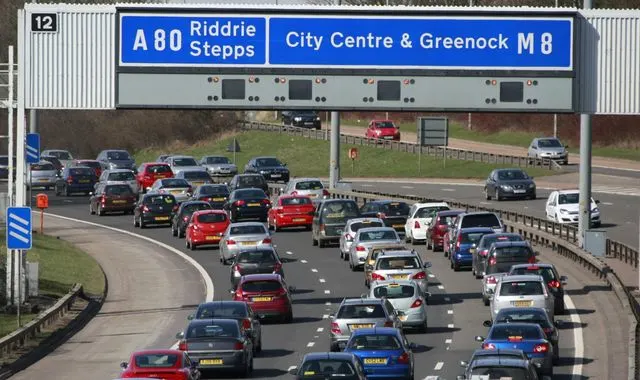
The report, released on Wednesday, criticises the government's failure to set measurable milestones and establish sufficient monitoring mechanisms. It warns that achieving the car use target would require a drastic reduction in traffic levels—equivalent to rolling back car use to 1994 levels.
‘No Clear Plan' to Meet Climate Goals
Audit Scotland's findings point to a disjointed approach to transport policy, describing spending decisions as complex, fragmented, and lacking transparency. The watchdogs argue that policies aimed at reducing car dependency have not been effectively coordinated, and that some of the difficult but necessary policy choices remain politically unpalatable.
"A lack of leadership has resulted in minimal progress against the demanding policy intention," the report states. "It is not clear if the Scottish government remains committed to the target as key documents remain in draft form. There is no costed delivery plan or measurable milestones, and arrangements for monitoring and scrutinising progress are insufficient."
The Scottish government had initially pledged to cut car kilometres by 20% as part of its wider commitment to reach net zero emissions by 2045. However, with progress faltering, the report calls on ministers to clarify whether the goal remains achievable and to outline how its failure would impact broader climate targets.
Councils Need More Support
The report also highlights the role of local councils in delivering the car use reduction target, but warns that they lack clear direction from the government.
"Councils need to set out to what extent they will contribute and how they will measure their progress," said Ruth MacLeod of the Accounts Commission. "But they also need clearer guidance and direction from the Scottish government."
Transport Scotland, the government agency responsible for transport policy, responded by acknowledging the scale of the challenge and committing to work with local authorities and regional transport partners.
"We recognise that Scotland has still got some way to go to transition from private vehicles towards more sustainable public transport," a spokesperson said. "Cross-party support at all levels of government is key."
The government has pledged £263 million in its next budget to encourage alternative transport options, but critics argue that previous policy decisions—such as scrapping a trial of free peak-time rail travel due to budget constraints—have undermined efforts to shift public behaviour.
Political Fallout and Criticism
The findings have sparked fierce criticism from opposition parties. Scottish Conservative transport spokesperson Sue Webber described the government's strategy as "incoherent," arguing that high public transport costs and reduced services had discouraged commuters from switching to greener alternatives.
"Reducing car usage depends on providing efficient and affordable public transport alternatives," Webber said. "Yet under SNP control, ScotRail is deterring would-be passengers by cutting services, at the same time as hiking ticket prices with the reintroduction of peak fares."
Scottish Labour's transport spokesperson Claire Baker echoed these concerns, calling the report "damning." She accused the government of setting ambitious climate targets without delivering the necessary policies to achieve them.
"Once again, the SNP has been setting targets and then failing to lift a finger to deliver on them," Baker said.
Meanwhile, Green MSP Mark Ruskell called for urgent action to address the rising cost of public transport, which he said remains a major barrier to reducing car dependency.
"Part of the challenge is the extortionate cost of transport," Ruskell said. "By introducing cheaper bus and train fares we can encourage people to make the switch to greener alternatives and to leave their car at home."
A Climate Emergency Without a Strategy?
The Scottish government declared a climate emergency in 2019 and set ambitious interim targets, including a 75% reduction in greenhouse gas emissions by 2030. In 2022, it announced that efforts to reduce car use were "stepping up a gear." However, the reality has failed to match the rhetoric.
In November, the Scottish Parliament removed the legally binding 2030 interim emissions target after climate experts deemed it no longer credible. Critics argue this latest report exposes a deeper issue: the government's failure to translate climate pledges into concrete, deliverable policy.
First Minister John Swinney has previously insisted that the 2030 car reduction target remains achievable, but admitted it "obviously requires changes in behaviour from members of the public."
With just six years left until the target deadline, and with car use still far above the necessary levels, Scotland's climate ambitions may soon collide with political and economic reality. Whether the government can turn the situation around remains an open question.